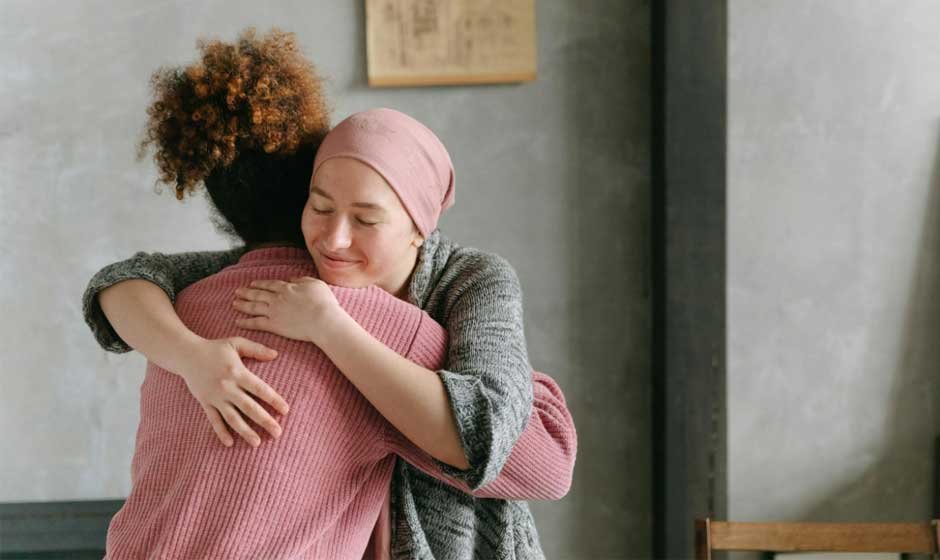A cancer diagnosis is often a life-altering event that affects not just the individual but their family and friends as well. The pathway through treatment and recovery can be daunting, leaving survivors to grapple with physical and emotional challenges. Post-treatment support plays a vital role in helping cancer survivors adjust to their new reality. It fosters resilience, provides a sense of community, and helps individuals navigate the complexities of life after cancer. This support can take many forms, including emotional, informational, and practical assistance.
Emotional Wellbeing and Mental Health
The emotional impact of cancer can last long after treatment has concluded. Many survivors report feelings of anxiety, depression, and post-traumatic stress. A supportive environment helps mitigate these challenges by offering a safe space to express emotions and discuss fears. It’s been shown that survivors who talk openly about their experiences are better equipped to cope with their mental health challenges.
Therapeutic support groups and counseling can provide resources to help process feelings about cancer and its aftermath. Engaging with professionals who understand these struggles can help survivors reframe their thought processes, leading to improved mental health. Individuals may feel isolated, so connecting with others who share similar experiences can be healing. Establishing healthy coping mechanisms becomes essential during this transformative journey.
Building a Strong Support System
A strong support system is fundamental for navigating the aftermath of cancer. Support can come from family, friends, and peers, but it may be beneficial to connect with those who have experienced similar battles. Peer networks often create understanding and empathy that family members may struggle to provide. Survivors should seek out a network for cancer survivors, which can provide both camaraderie and shared wisdom. Actively participating in support groups can help survivors know they are not alone in their journey.
Understanding that many others have gone through similar experiences can alleviate feelings of isolation. It’s important for survivors to empower their loved ones with knowledge about their specific needs during recovery. Communication is key in ensuring that the support offered is both meaningful and effective.
Accessing Resources and Information
Knowledge is empowering, especially for cancer survivors. After treatment, individuals often have questions about their health, nutrition, and lifestyle changes. Reliable resources can offer valuable insights regarding post-cancer living. Information about managing side effects, nutrition, and available therapies plays a crucial role in recovery. Websites, books, and local organizations can be excellent sources of information.
Accessing these resources can provide survivors with practical steps they can take to aid their healing journey. Financial counseling is another aspect that can significantly impact survivors’ lives. Understanding insurance coverage and other financial assistance options is critical to relieve some of the burden they might face. Awareness of community resources can further help individuals navigate their recovery process.
Physical Health and Wellness
Physical health plays a significant role in recovery and can be enhanced through exercise and nutrition. Cancer treatment often takes a toll on the body, so engaging in regular physical activity is vital. Incorporating a balanced diet can further aid physical recovery. Cancer survivors should consult with healthcare professionals to create personalized health plans. Many survivors find that developing healthier habits aids recovery and boosts confidence.
Incorporating activities like yoga, walking, or swimming can enhance both physical and emotional health. Social physical activities, such as group fitness classes, can encourage camaraderie and foster a sense of community. Receiving encouragement from others while pursuing physical health can help sustain motivation throughout recovery.
Understanding the Long-Term Effects of Treatment
Many cancer survivors face long-term side effects that can persist even after treatment concludes. These can include fatigue, pain, cognitive impairments, and changes in appearance. Understanding these potential long-term effects is essential for both survivors and their support networks. Discussions regarding ongoing health monitoring should be a priority with healthcare providers.
It’s key for survivors to stay informed about their health and seek help when necessary. Recognizing these effects allows individuals to adapt their daily routines and expectations. Engaging in educational sessions can empower survivors and their loved ones with knowledge about what to expect and how best to manage these lasting challenges.
Advocating and Raising Awareness
After their journey, many survivors feel compelled to give back by advocating for cancer awareness and support for others. Advocating can take many forms, such as participating in campaigns, sharing stories, or volunteering with organizations. Engaging in advocacy raises awareness and helps survivors reclaim their narrative. By sharing experiences, survivors can inspire others and provide hope.
Creating awareness around the emotional and physical challenges involved in post-cancer life is crucial in breaking stigmas and fostering understanding. Enabling discussions surrounding survivorship can lead to increased community support and resources. Survivors should consider how they can get involved and help others feel less alone during their journeys.

Support after cancer is essential for fostering a sense of community, improving mental health, and enhancing physical wellness. Survivors benefit tremendously from emotional, informational, and peer support. Building and maintaining relationships with others who’ve faced similar challenges can help navigate the complexities of life after cancer. Empowering them with resources and encouraging open communication signals a proactive approach to recovery.










